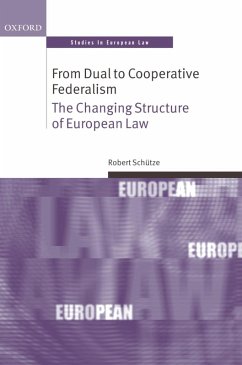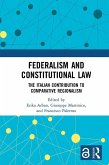What is the federal philosophy inspiring the structure of European law? The federal principle stands for constitutional arrangements that find "unity in diversity". The two most influential manifestations of the federal principle emerged under the names of "dual" and "cooperative" federalism in the constitutional history of the United States of America. Dual federalism is based on the idea that the federal government and the State governments are co-equals and each is legislating in a separate sphere. Cooperative federalism, on the other hand, stands for the thought that both governments legislate in the same sphere. They are hierarchically arranged and complement each other in solving a social problem. Can the European Union be understood in federal terms? The book's general part introduces three constitutional traditions of the federal idea. Following the American tradition, the European Union is defined as a Federation of States as it stands on the "middle ground" between international and national law. But what federal philosophy has the European Union followed? The special part of the book investigates the structure of European law. Three arguments are advanced to show the evolution of the European legal order from dual to cooperative federalism. The first looks at the decline of constitutional exclusivity on the part of the Member States and the European Union. For almost all objects of government, the Union and its States operate in a universe of shared powers. The second argument analyses the decline of legislative exclusivity. European and national legislation - increasingly - complement each other to solve a social problem. The third argument describes the "constitutionalisation" of cooperative federalism in the form of the principle of subsidiarity and the idea of complementary competences. A final Chapter is dedicated to Europe's foreign affairs federalism. It analyses, whether the external sphere must be regarded as subject to different constitutional or federal principles. The book concludes that cooperative federalism will benefit both levels of government - the Union and the Member States - as the constitutional mechanism of uniform European standards complemented by diverse national standards best expresses the federal idea of "unity in diversity".
Dieser Download kann aus rechtlichen Gründen nur mit Rechnungsadresse in A, B, BG, CY, CZ, D, DK, EW, E, FIN, F, GR, HR, H, IRL, I, LT, L, LR, M, NL, PL, P, R, S, SLO, SK ausgeliefert werden.









